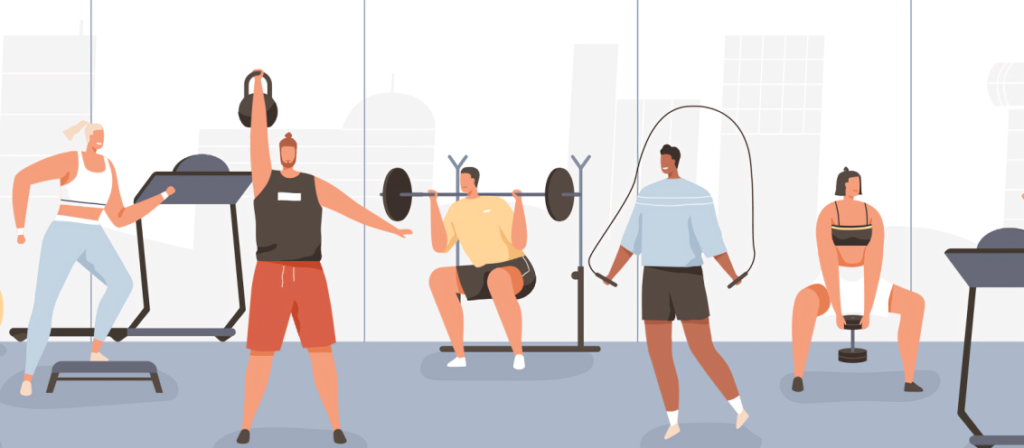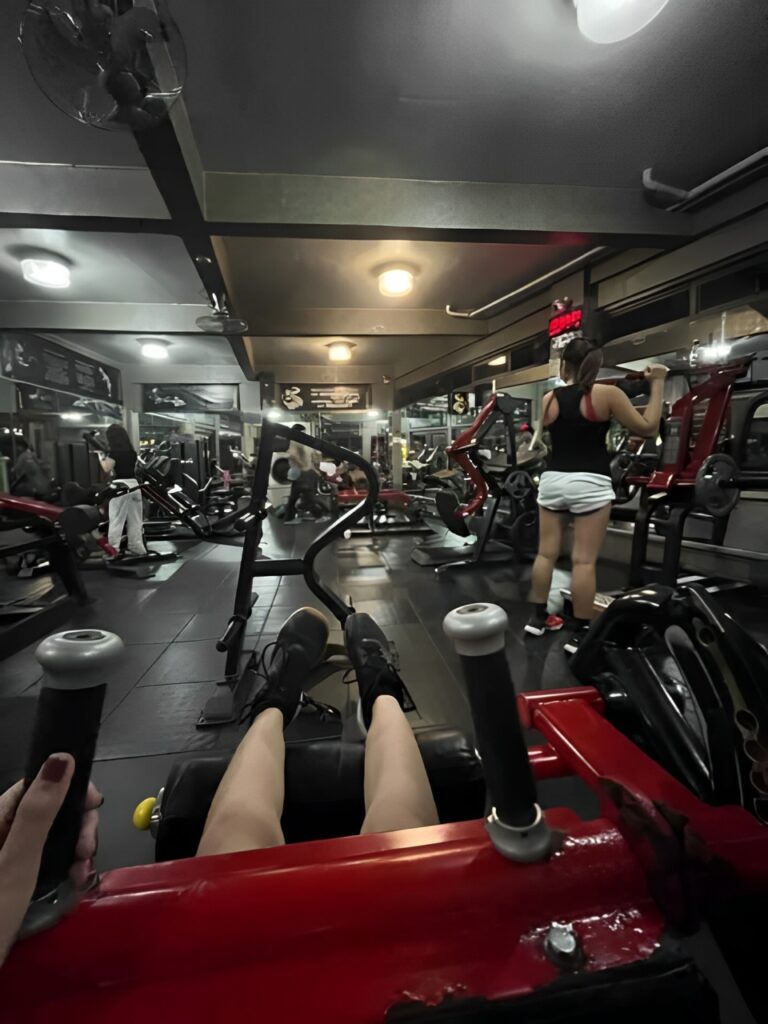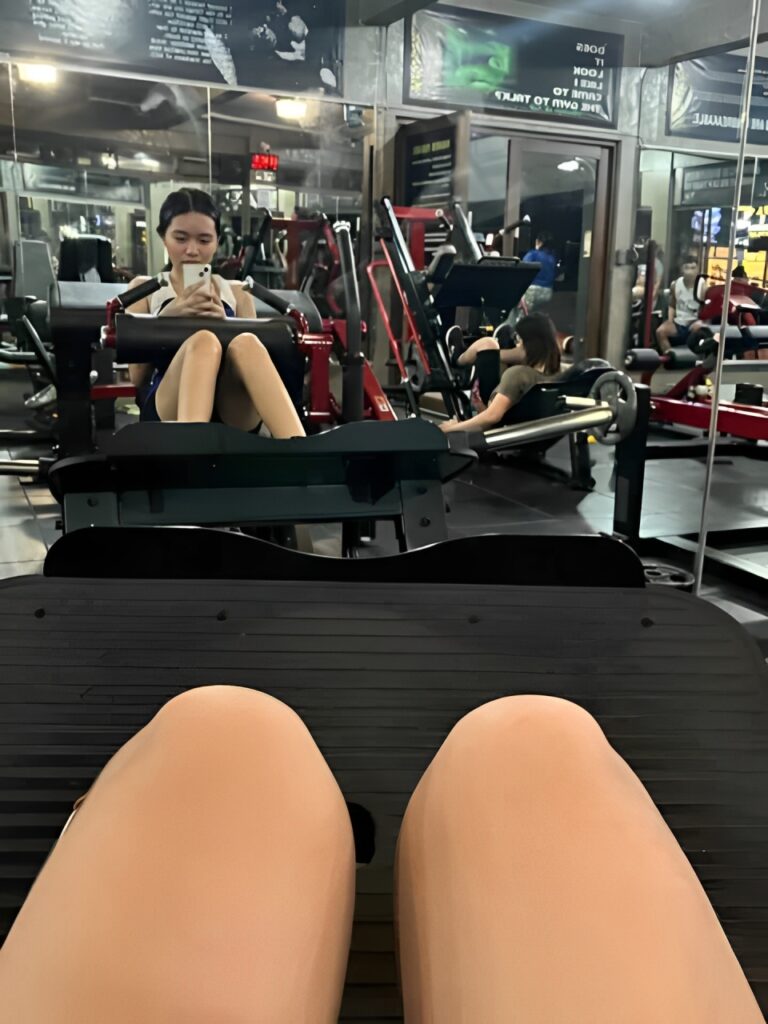From Aesthetics to Wellness: Why Filipino Youth Are Redefining ‘Fit’
Written by Jerchel Gayle Tayag
Is a healthier body the new sexy? Do you notice the rising trend of a healthier lifestyle among Filipino youths? Strava? Gym buddies? Home workouts? Calorie deficit?

Exercising regularly, every day if possible, is the single most important thing you can do for your health, according to Harvard Medical School. Regular physical activity can help improve cardiovascular fitness, enhance flexibility, and strengthen bones and muscles in the body, reducing the risk of many diseases such as obesity, diabetes, and heart disease. It also helps to improve not only our physical but also our mental well-being, as it is known to release endorphins or commonly known as the “feel good” emotions.

Courtesy: BuzzRx
In recent years, young Filipinos has been shifting significantly in terms of attitude towards health and wellness, increasingly prioritizing health and wellness with the advent use of technology, increased awareness of health issues, changing cultural attitudes, embracing healthier lifestyles, actively participating in gym culture, utilizing fitness apps like Strava, and reducing calories in their meal, has been the trend among the Filipino youth nowadays.
Today’s youth have remarkable access to information online, which is why trends spread widely and fast. Social media has undeniably skyrocketed the trend of Filipino fitness communities. Platforms like Facebook and Instagram are filled with fitness enthusiasts who provide accessible resources and inspiring content, according to The Rise of Fitness Communities: How Filipinos Are Embracing Group Workouts.
This has led to greater awareness of healthy living and available resources for maintaining fitness. In contrast, the youth of previous generations had limited access to health information and could only rely on traditional media or family advice, which often lacked the depth and variety of knowledge available now.



Courtesy: Jersey Guia Mabansag
For example, Jersey Guia Mabansag, a 17-year-old, has been going to the gym for about 2 months. She states that her initial reason for going to the gym is to look good for their vacation, however, she realized that this motivation was not enough to keep her going. Suddenly, one of her friends got sick and was advised to adopt a healthier lifestyle, which made her realize how important it is to take care of her body, not just for appearance but for her overall well-being. “Now, going to the gym isn’t just about looking good; it’s about feeling good and staying healthy for the long term.” She added. She also explains the benefits that she gained from doing workouts and exercises, like improvements in endurance and overall fitness. According to her, it also helped her manage stress, stay more focused, and develop more discipline.

Courtesy: Myles Away
Another example is the “Calorie Deficit” trend on social media. Basically, the trend occurs when you consume fewer calories by weighing everything you eat and calculating the calories that you intake, for you to be able to also calculate the needed calories to maintain your body. Essentially, creating a calorie deficit helps people lose weight while encouraging healthier eating habits. Each person has unique calorie needs. These needs are determined based on factors including age, sex, height, weight, and physical activity levels.

Courtesy: Tito Mikee, Jelmalyn Alpuerto
Lastly, the tracking tool app that is popular in fitness tracking, designed for runners, cyclists, and outdoor enthusiasts – the Strava app. It allows users to monitor their progress over time and share it with their friends on social media. It provides detailed statistics on workouts, including the distance, pace, elevation, gain, and calories burned while working out. The app also has a feature where you can follow friends, share achievements, and participate in challenges, allowing users to connect and inspire one another.
According to the latest Sun Life Financial Asia Health Index, Across Asia, the Philippines is among those with the highest percentage of citizens who don’t exercise regularly, mostly due to lack of time, lack of personal motivation, and “distractions” of modern life. The study shows that 57 percent of Filipinos blamed it on their lack of time due to work while 47 percent admitted that it’s due to “lack of personal motivation”, based on some of the 47 percent, the “distractions of modern life” refers to people glued to their gadgets and engaging in social media than engaging in physical activities.
Based on The Rise of Fitness Culture in the Philippines: A Journey to Wellness, not many Filipinos thought about fitness the way we do now. People mostly saw physical activity as something you did for work, not something you did to stay healthy. The older generation’s reluctance to engage in fitness during their days can be attributed to several factors that affect their lifestyle and societal context. Unlike the youth today, where fitness has been a focal point of health consciousness and previous generations often prioritized work and family responsibilities over personal wellness.
How about you? Do you want to have a sexier body? Or a healthier lifestyle? What about… having both?
What do YOU think? What do YOUTH think?
Resources:
Thim. (2025b, March 17). The rise of fitness culture in the Philippines: A Journey to Wellness. Richest Philippines. https://richestph.com/the-rise-of-fitness-culture-in-the-philippines-a-journey-to-wellness/
Thim. (2025c, March 22). The rise of fitness communities: How Filipinos are embracing group workouts. Richest Philippines. https://richestph.com/the-rise-of-fitness-communities-how-filipinos-are-embracing-group-workouts/
Ostertag, E. (2024, December 5). Strava Fitness Report Highlights Trends Around Social Workouts, Recovery & Gear. Athletech News. https://athletechnews.com/strava-2024-fitness-report-highlights-trends/
Dumlao-Abadilla, D. (2017, January 20). Most Filipinos lack exercise – study | Inquirer Business. INQUIRER.net. https://business.inquirer.net/223197/filipinos-lack-exercise
Van Thomme, G. (2024, August 22). What’s a calorie deficit? A dietitian explains. MD Anderson Cancer Center. https://www.mdanderson.org/cancerwise/whats-a-calorie-deficit.h00-159699912.html